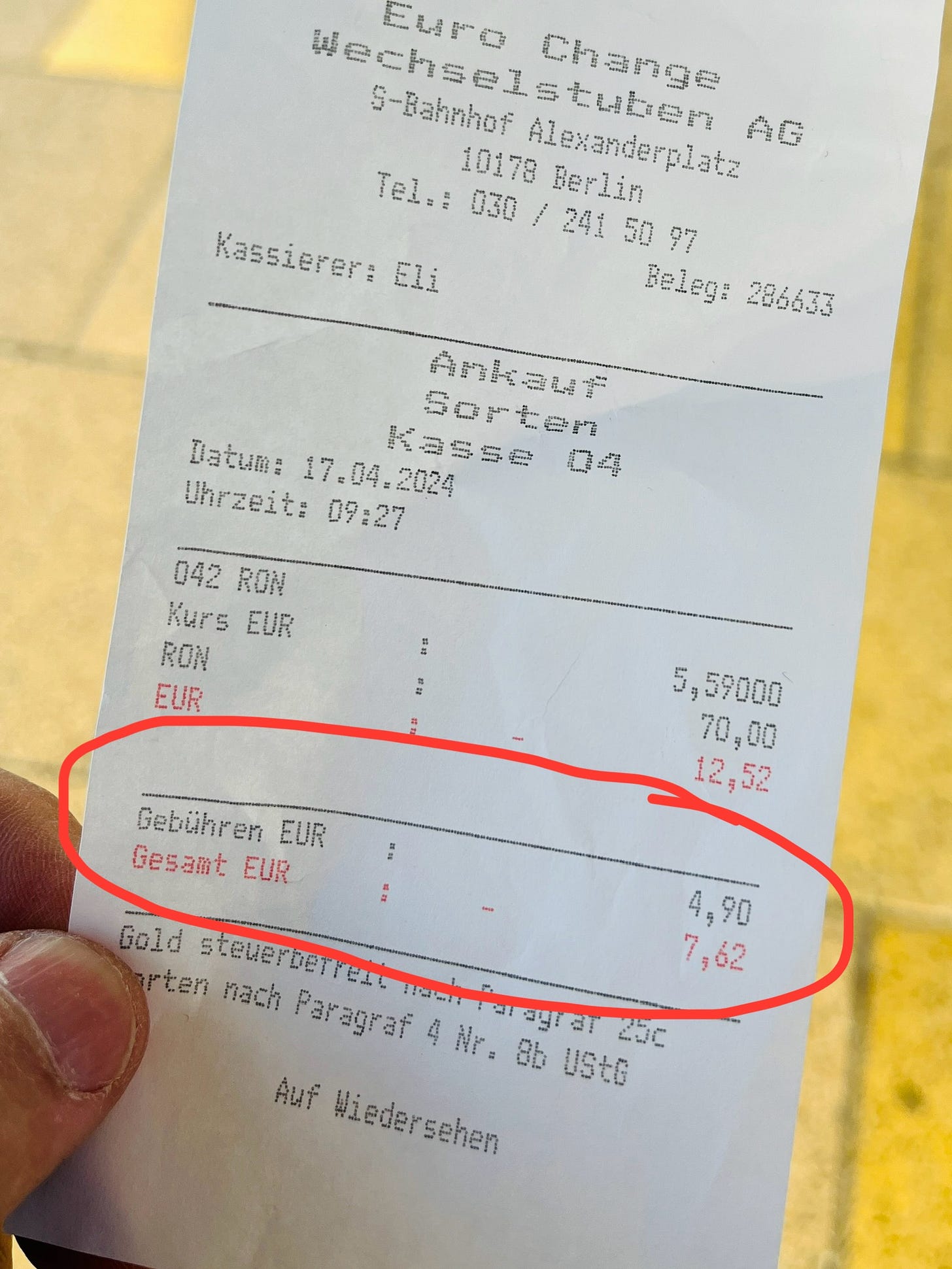Peace project euro - Who‘s next?
#84
Dear Friends of Democracy,
Economists can spend hours discussing whether the introduction of the euro was a good thing.
The so-called optimal currency area theory has pros and cons for implementing a single currency.
A disadvantage, for example, is that with a single currency, different economic developments between countries cannot be compensated by adjusting exchange rates. On the other hand, a major disadvantage of having different currencies is changing currency comes with a price (like I experienced it yesterday; see photo below).
In any case, the euro seems to be a great source of peaceful coexistence in Europe.
Why?
Economics can explain that as well.
There are two fundamental ways of human coexistence: peaceful and violent. In the first, you get what you want by voluntary exchange; in the second, you get it by using violence. According to this theory, the extent of hostility, injustice and war decreases the more opportunities people get to achieve their goals by exchange.
In this sense, the euro contributes to peaceful coexistence by facilitating the exchange of goods and services. And also of people. Because a single currency makes it easier and cheaper to travel between countries and spend money there, which is nothing else but trade.
So the euro zone is probably a good thing. And it will probably continue to grow.
After Croatia joined the eurozone on 1 January 2023, there are still seven non-eurozone members of the EU: Bulgaria, the Czech Republic, Denmark, Hungary, Poland, Romania, and Sweden.
Bulgaria is expected to be next, with the beginning of 2025.
Czechia is the most economically primed for eurozone accession.
Romania could follow in 2026.
Poland could join in some years since people voted for a more EU-friendly government last year.
Hungary would also undoubtedly benefit from euro membership, but membership is not a political goal of the current eurosceptic government of Victor Orban.
Denmark already benefits from a stable currency through the peg of Danish’s krone to the euro.
In Sweden, the public is reserved about joining the euro. However, the benefits would not be that significant because Sweden's krona is already a stable currency.
In any case, the odds are in favor of paying with a single currency in even more countries in the future.
See you in Europe,
Johannes


